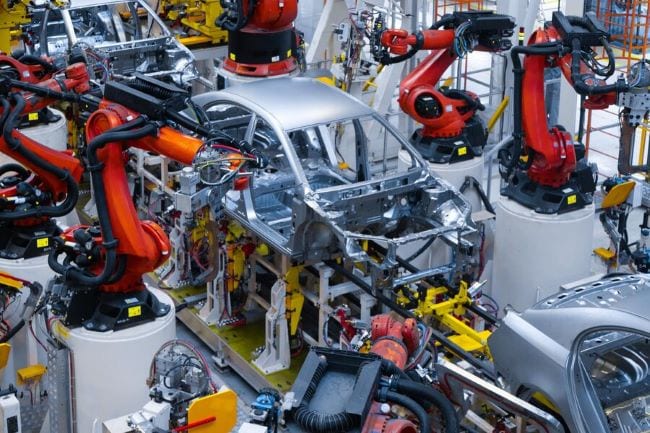
Car accidents are unfortunate and often traumatic events that can result in severe injuries, extensive medical bills, and financial hardships. While many accidents are caused by human error, there are instances where the blame lies squarely on the shoulders of the car manufacturer. If you find yourself in such a situation, it’s crucial to understand your legal rights and whether you can sue a car manufacturer for an accident.
When Can You Sue a Car Manufacturer for an Accident?
Suing a car manufacturer for an accident is complex and hinges on various factors. The critical factor in such cases is establishing that the accident resulted from a manufacturing defect or design flaw in the vehicle. Let’s delve into the scenarios where you might have grounds for legal action:
Manufacturing Defects:
Manufacturing defects occur during production, leading to a flawed vehicle component. This can encompass a wide range of issues, such as faulty brakes, defective vehicle tires, or problems with the fuel system. If your accident can be directly linked to such defects, the manufacturers are liable for damages incurred from their defective vehicles; you may have a valid claim against the car manufacturer.
Design Defects:
Design flaws refer to inherent problems in the vehicle’s design that make it unreasonably dangerous. For instance, a car with a poorly designed structure that compromises safety in a crash could be practical. If the vehicle can be traced back to a fundamental flaw in the vehicle’s design, you may have grounds for legal action.
Failure to Provide Adequate Warnings:
Manufacturers are responsible for providing sufficient warnings about potential risks associated with using their products. If your accident resulted from insufficient warnings about specific safety risks or the proper vehicle use, you could sue the car manufacturer.
Types of Vehicle Defects Leading to Accidents
Understanding the types of vehicle defects contributing to accidents is crucial when considering legal action against a car manufacturer.
Faulty Airbags: Airbags are designed to protect occupants during a collision. If they fail to deploy or deploy with excessive force, causing injuries, it may be due to a manufacturing defect.
Brake Failure: Brake failure can result from manufacturing flaws, leading to an inability to stop the vehicle promptly. Accidents caused by brake failure may be grounds for a product liability claim.
Structural Problems: Issues with the vehicle’s structural integrity, such as weak roofs or poorly designed crumple zones, can significantly contribute to the severity of injuries in an accident.
Defective Tires: Tire blowouts and tread separation can lead to a loss of control and accidents. The car manufacturer may be liable if the tires were defectively manufactured.
Fuel System Defects: Leaks or fire susceptibility in the fuel system pose significant safety risks.
Types of Compensation in Product Liability Claims
If you can establish that the car manufacturer is at fault for the accident, you may be entitled to various types of compensation. These can include:
Medical Expenses:
Compensation for medical bills related to injuries sustained in the accident, including hospital stays, surgeries, rehabilitation, and ongoing medical care.
Economic Damages:
Recovery for economic losses such as property damage to the vehicle, lost wages due to missed work, and other out-of-pocket expenses.
Punitive Damages:
In cases of extreme negligence or intentional misconduct by the manufacturer, punitive damages may be awarded to punish the wrongdoer and deter similar behavior.
Valid Grounds for Suing a Car Manufacturer
To successfully sue a car manufacturer, you must establish the following:
Causation: Demonstrate a direct link between the vehicle’s defect and the accident’s occurrence. This requires thorough investigation and the gathering of concrete evidence.
Injury: Provide evidence of the injuries sustained due to the accident. This can include medical records, photographs, and testimony from medical professionals.
Defect: Identify the weakness in the vehicle that led to the accident. This requires expert analysis and testimony to establish the connection between the defect and the incident.
Timely Action: Adhere to the statute of limitations for product liability claims in your state. Please file a lawsuit within the specified time frame to avoid the loss of your legal rights.
Automotive Product Liability Laws
Automotive product liability laws vary by state, but they generally fall under the broader category of product liability. These laws hold manufacturers accountable for the safety of their products and provide consumers with legal recourse in case of injury or harm.
Strict Liability:
Many states follow a strict liability approach in product liability cases. This means that if a defect in the vehicle caused the accident, the manufacturer can be held liable regardless of whether they were negligent.
Negligence:
In some cases, you may need to prove that the manufacturer was negligent in designing or producing the vehicle. This involves demonstrating that they failed to meet the standard duty of care in ensuring the safety of their products.
Breach of Warranty:
If the vehicle came with express or implied warranties, and the manufacturer failed to meet those warranties, you may have grounds for legal action based on breach of warranty. This type of legal action falls under product liability law.
Seeking Legal Guidance
Hiring a qualified personal injury lawyer is crucial if you believe a vehicle defect caused your car accident and are considering legal action against the manufacturer. Here’s how an attorney can help you navigate the complexities of a product liability case:
Case Evaluation: An attorney will help you gather essential information and evidence about the accident. This may include medical records, accident reports, photos, and any documentation about the vehicle’s defects.
Determining Liability: Attorneys often work with experts in various fields, such as accident reconstruction specialists and automotive engineers, to analyze the evidence and determine if a manufacturing defect or design flaw contributed to the accident.
Evaluating Losses: A skilled attorney will help you assess the full extent of your damages, including medical expenses, lost wages, property damage, and non-economic losses like pain and suffering.
Developing a Strategy: Based on the gathered evidence and a thorough understanding of your case, your attorney will develop a legal strategy to pursue the compensation you deserve.
Product Liability Laws: An experienced attorney understands product liability laws, including those specific to automotive defects. This knowledge is crucial for building a solid case and navigating the legal process effectively.
Timely Action: Your attorney will ensure you file the lawsuit within the statute of limitations, adhering to the specified timeframe. Please do so to avoid the loss of your legal rights.
Settlement Negotiations: Attorneys are skilled negotiators. They will negotiate with the car manufacturer’s legal team to secure a fair settlement. This process may involve discussing compensation for medical bills, lost wages, and other damages.
Litigation Support: If a fair settlement cannot be reached, your attorney will represent you. They will present your case before a judge and jury, advocating for your rights and seeking the compensation you deserve.

Get help from a Seasoned Car Accident Attorney At BLG
Suing a car manufacturer for an accident is a complex process that requires a thorough understanding of product liability laws, the specific defects involved, and the legal process. If you believe your accident resulted from a manufacturing defect or design flaw, don’t hesitate to seek legal advice. An experienced personal injury attorney can help you navigate the complexities of the legal system, gather the necessary evidence, and pursue the compensation you deserve. Remember, holding car manufacturers accountable helps you and contributes to the overall safety of vehicles on the road.
If you’ve been involved in a car accident due to a manufacturing defect, don’t wait to seek the justice and compensation you deserve. BLG is here to guide you through the legal process and fight for your rights. Our experienced personal injury attorneys specialize in product liability claims and have a proven track record of success.
Contact us now for a free consultation.
FAQs
Can auto manufacturers be sued?
Yes, auto manufacturers can be sued. If there is evidence that their vehicles have a defect or if they failed to meet safety standards, individuals or groups may file lawsuits against them.
What must you prove to sue a manufacturer successfully?
To successfully sue a manufacturer, you generally need to prove the following:
Defect: There was a defect in the product (e.g., a design or manufacturing defect or failure to warn about potential dangers).
Causation: The defect directly caused the injury or damage.
Damages: You suffered actual harm or losses due to the defect.
Is a manufacturer liable for any injuries?
Vehicle manufacturers can be held liable for injuries caused by product defects. The legal concept of product liability holds manufacturers responsible for ensuring their products are safe for consumers. If a product defect leads to injuries, the manufacturer may be liable for medical expenses, pain and suffering, lost wages, and other damages. However, liability can vary based on factors such as the type of defect and whether the user followed proper usage instructions.





